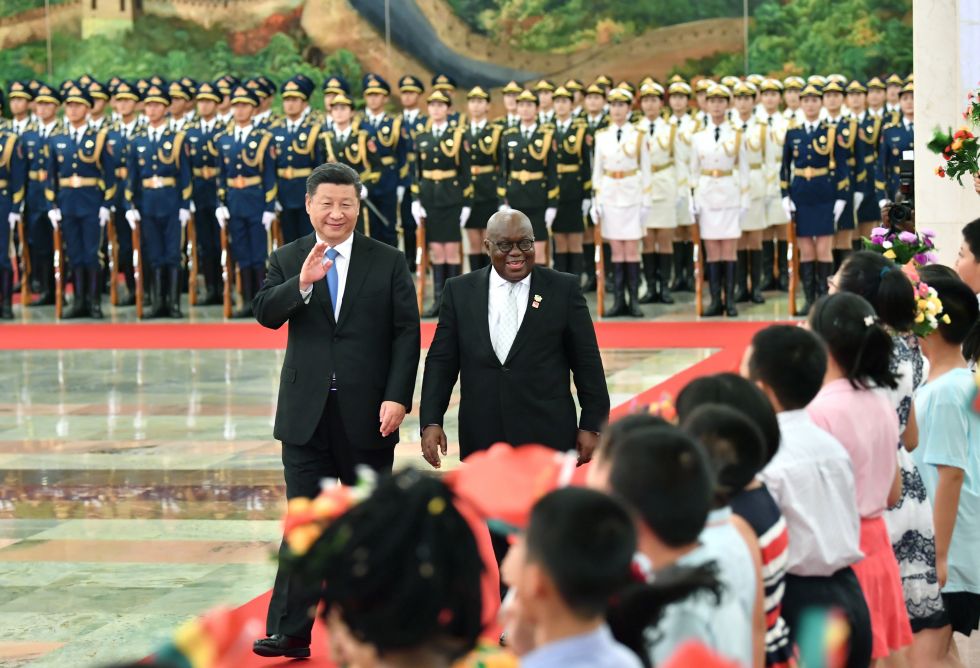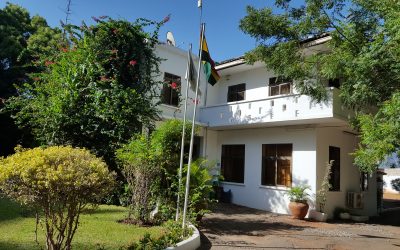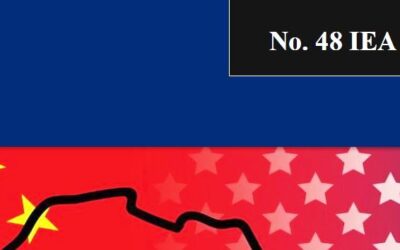July 5th, 2020 marks the 60th anniversary of diplomatic relations between Ghana and China and an important milestone in the history of the two countries. On this day, Ghana and China laid the foundation for stable and long-lasting bilateral relations, based on a shared vision of future prosperity. Just four days earlier, on 1st July, 1960, Ghana had attained republic status, three years after gaining independence from Britain.
The same year, Ghana’s first president, Dr. Kwame Nkrumah, and China’s Chairman Mao Zedong both launched ambitious plans to transform their agrarian economies into modern, industrial ones with the state playing a central driving role. However, while Ghana’s plan was truncated in 1966 with the overthrow of President Nkrumah, China, on the other hand, followed one of the most successful industrialisation projects in modern history, catapulting the country to an economic powerhouse in less than three decades.
Evolution of Ghana-China Ties
While their economic experiments diverged on separate paths, Ghana and China maintained strong diplomatic ties. Relations between the two were briefly interrupted in the wake of the 1966 coup but were restored three years later when a change of government took place.
In the international arena, the two countries have been champions of the Non-Aligned Movement (NAM). Inaugurated in 1961 in Belgrade in the former Yugoslavia, NAM sought to steer a neutral path, nonaligned to the then superpowers, the United States and the former Soviet Union. While Ghana was a founding member of NAM, China staunchly championed the cause of the movement from its observer status. Under the umbrella of NAM, China supported African countries in their struggle for independence and against Western domination.
Further, as a founding member of, and a leading voice in, the Organisation of African Unity, Ghana played a pivotal role in China’s winning a seat at the United Nations Security Council, joining other African countries to vote in favour of China. Ghana’s support was also pivotal in China’s subsequent acceptance to the World Trade Organisation.
The Future of Ghana-China Relations
Ghana-China relations are expected to move from strength to strength, especially in economic terms. This will happen in the context of the burgeoning economic ties between China and Africa as a whole. Almost twenty years ago, Ghana joined other African countries to sign the Forum on China-Africa Cooperation (FOCAC). Inaugurated on 10-12 October 2000 in Beijing, FOCAC laid the groundwork for a new chapter of Sino-Africa relations. Over the past 15 years or so, China has demonstrated a strong commitment to forging a new type of development cooperation with Africa. The commitment was given renewed impetus at the FOCAC summit held in Beijing in early September 2018. China is currently Africa’s biggest trading partner and has also increased its investment in Africa substantially. China has an investment presence in 36 of Africa’s 54 countries. By 2020, Chinese direct investment in Africa is projected to top US$ 100 billion. FOCAC offers a great opportunity for Africa to leverage its huge resource wealth to promote the continent’s development. China is indeed the new development partner for Africa.
Ghana’s economic relationship with China is poised to move from strength to strength in the context of FOCAC. China is reported to have already surpassed the US as Ghana’s biggest trading partner. The Ghana Investment Promotion Centre reports that Chinese investment in Ghana now tops all FDI in Ghana. Bilateral trade between the two countries has reportedly reached US$4 billion. Ghanaian exports to China have been largely minerals, oil and agriculture produce, while its imports from China have been dominated by manufactures such as textiles and apparel, electronics and automobiles. However, there is the potential for Ghana to increasingly export more refined products to China under FOCAC. China continues to offer economic assistance to Ghana in wide-ranging areas, including road projects, health facilities, water supply systems, power generation and distribution, education facilities, and oil and gas projects. China has an unmistakably huge presence in Ghana today and this presence is projected to grow even bigger in the years ahead. Chinese businesses currently dot Ghana’s economic landscape.
Ghana-Sino bilateral relations have endured and have been mutually beneficial. It is for this reason that the 60th anniversary of bilateral relations will be seen as a significant milestone worthy of recognition and commemoration by both countries. And on the occasion of this momentous anniversary, the IEA wishes to congratulate both countries for maintaining such enduring, mutually beneficial ties. The Institute also wishes to congratulate China in particular for its spectacular success in transforming its economy from an agrarian one into the second largest economy in a relatively short span of 30 years. China has achieved this feat by using the state effectively to harness the country’s natural and human resources and mobilising and marshalling the collective efforts and energies of its large and diverse population to support national development. These are lessons that Ghana can learn from in her quest to transform the country from third world to first world status in a generation, replicating China’s success story.
Dr. Charles Mensa is the founder and Chairman of the Institute of Economic Affairs. He previously served as the CEO of Volta Aluminium Company, the largest aluminium smelter in sub-Saharan Africa. Dr. Mensa holds a Master’s degree in Finance from the George Washington University and a PhD in economics from George Mason University.






0 Comments